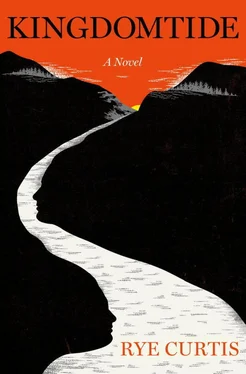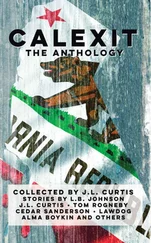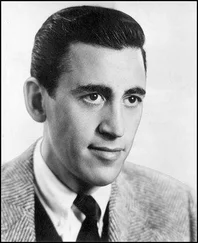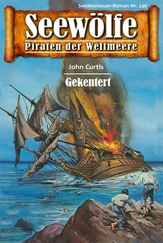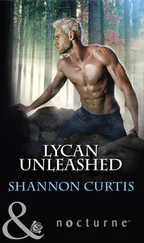I put on Terry’s big coat and was very small in it. I crawled back into the fuselage, and under Terry’s seat I found a plastic sack containing a small black hatchet and an old blue umbrella. I was sure happy to find these. There was also a tennis ball with the word stress written on it in marker and a flashlight that would not turn on so I left it where it was. I rolled up the issue of Time magazine and the tore-up map and put these in my purse. I climbed out of the fuselage and did not once look back at the little airplane. In hindsight, I ought to have left a note telling anyone that might come along where I had gone.
At the edge of the escarpment I picked up Mr. Waldrip’s boot and stuffed it toe-first into my purse as far as it would go. After scouting around I found a suitable enough slope with soft dirt and loose rocks. I dug in the heels of my shoes and carefully climbed down to the floor of the woods below. I had not been in the dirt like that since I was a little girl. After I had caught my breath I pushed on through the trees.
I had not gone far when I spotted Mr. Waldrip’s glasses on the ground. I looked up. Mr. Waldrip was hung above me in the spruce. His arms were out wide as if to greet me in a way he had never done before. His head sat mauve and swollen on his shoulders at a funny angle. There were no cuts nor blood to his face. The expression on him was one I had seen when someone talked to him about a drought. That dab of jalapeño jelly was still on his chin.
I recall wanting to bawl, but I did not. I suppose some things are just too sad that tears cannot do them justice.
When Mr. Waldrip and I were a young couple, we would argue about small infractions just as young couples do. I recall one summer night in the backyard of our new home under the water tower when the cicadas were very loud and I was as mad as a wet hen and we had raised our voices at each other. About what I do not now remember. But while I was still hollering and pointing up and pointing down and going red in the face he had calmed. He smiled. He reached out and brushed away my hair and said, No matter how angry you get, Clory, I always know you still got your kind little ears.
Standing under his body then, I wished to be the woman I was when he had loved me the most. Mr. Waldrip always said I was the most whip-smart woman or man he had ever met and that I could outword a dictionary. I thought that if I could manage to be that woman for just minutes at a time, maybe I just might survive this ordeal. Perhaps I had a way out of this immense and terrible place. So I fixed my hair around my ears best I could, knelt down, and picked up Mr. Waldrip’s glasses. I stowed them in the breast pocket of Terry’s coat and set out through the trees in the direction of the smoke.
Tuesday morning Lewis sat at her desk before the wide window and watched with bagged eyes the light change on a page of the Missoulian . She had come into the station again before sunrise and by the time Claude and Pete arrived she had already drunk two cups of coffee and a mugful of merlot from a bottle she kept under her desk. She had read twice the front-page story on the disappearance of a ten-year-old girl, vanished from her bed in the middle of the night. She flipped back to the newsprint photograph. The girl wore a deely bobber and smiled crookedly before a painted canyon landscape.
You read this about the missin girl? Lewis said. The Hovett girl? Sarah Hovett?
Claude was hunched over the narrow desk at the west wall, touching ointment to the blue end of his nose. I did, he said. He laid a hand on the head of the old dog snoring at his feet. I’d hate to know what happened to her.
I sure do appreciate y’all havin me in your place of work, Pete said from the kitchenette. He steadied the video camera on the counter and put an eye to the viewfinder, recording the percolator drip. I appreciate the company durin these tryin times.
We know you do, Claude said. Don’t use up all the tape on pictures of coffee.
Lewis folded the newspaper and dropped it in the wastebasket. I can’t figure why sittin up here on a goddamn mountain with us’d make anybody feel better about anythin.
Pete shrilled like a hag and turned off the video camera. He poured two mugs of coffee. You sure are funny, Ranger Lewis. He gave Claude a mug and kept one for himself, then put a hand to the wall and faced the window and sipped. He gestured out the window. Ain’t enough to mention it’s just plain gorgeous.
White clouds lay banked high in the mountains and below in a valley went what Lewis figured to be a herd of elk. Sentient points of black in an otherwise senseless landscape.
Sometimes I’d like to live in a goddamn city, she said. With all kinds of goddamn people around.
Pete brought to his malformed chest the coffee mug and nodded as if troubling at a riddle. The rest of the morning he drank coffee and videotaped angles of the station and listed for Lewis the infidelities his wife had committed in their toolshed under the cover of darkness, and told how she had contracted syphilis from a nineteen-toed lounge singer who mowed the lawn next door.
She just got to where what she had weren’t enough for her, Pete said, adjusting an angle on Claude’s wastebasket. And look what it got her. Look what it got me. She’s selfish and makes a real good play of makin you think it’s healthy. Boundaries, she calls it.
Claude sighed and threw away the empty tube of ointment. The old dog raised its head and lapped its ragged mouth. Don’t tell her about all that. Talk about somethin regular. My God.
What kind of work you do, Pete?
He’s in finance, Claude said.
I put some money I’d saved workin at the cannin factory in my nephew’s TV game. It’s doin better than just makin hens meet.
Ends meet, Claude said.
Now I got some money in a cheddar-flavored soda pop I got real high hopes for.
The sun now stood high in the window above a coalblack thunderhead beyond the mountains. Lewis poured another mugful of merlot in secret. She told the two men that there was not a goddamn thing going and that they could start hunting Cornelia’s ghost and leave her to finish out the day alone.
Cornelia’s nocturnal, Claude said. I’d say you know that.
Pete hoisted the video camera to a shoulder and asked Claude to tell him more about Cornelia’s ghost for he did not entirely understand what they were doing.
Claude leashed the old dog at his feet and stood from his desk and went on to explain how Cornelia Åkersson had been born male in Sweden in 1841, but had feminine features and chose to live as a woman. He told how she had come to Montana in 1859 with her husband, Odvar, in a caravan from the Boston seaport and how she was only eighteen years old when three men from the caravan camp raped her and found out what she was. Thereafter they pulled her teeth and left her in the Bitterroot to die, Claude said. Then they murdered Odvar and tossed his body in a crick.
Pete had leveled on Claude the video camera. You been sayin she’s got one big eye.
Her eyes’ve grown together in the center of her forehead, Petey. Happens to greater shades over time. These mountains keep most of the souls of their dead, so we’ve got lots and lots of shades here. Even the spirits of prehistoric animals that died millions of years ago. I’d say that’s the reason why Cornelia rides aback the phantom of a megafaunal armadillo from the Cenozoic called a glyptodont. Imagine gettin that picture.
I can’t, Pete said. He took his eye from the viewfinder and turned off the video camera and let it go slack about his neck. You ever go snipe huntin when you was a kid?
Читать дальше
Конец ознакомительного отрывка
Купить книгу
